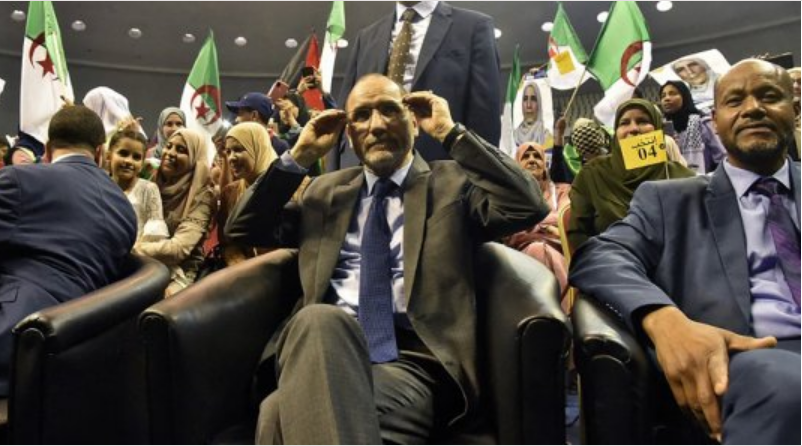Algeria’s largely boycotted 12 June legislative election was marked by the once-popular Islamist movement’s failure to emerge as the country’s leading political force.
A fortnight earlier, Abderrazak Makri, president of the Mouvement pour la Société et la Paix (MSP) had been confident that he would win over the majority of voters. He even went so far as to reveal his ambition to become prime minister and have the position of president of the National Assembly – the country’s third most important post – be awarded to a member of his party.
“We want to be in power, not its façade”
Even before the final results were announced, the leader of the first Islamist political formation, which is close to the Muslim Brotherhood, claimed victory in at least 23 wilayas (prefectures) and warned against attempts at fraud. As the MSP had only won 65 seats, the party had to be satisfied with second place, which still left it with hopes of playing a significant role in government. But on 7 July, when the new government was announced, Yacine Merabi was the only one out of 17 new ministers that belonged to the Islamist movement.
As a result, the Islamo-conservative movement El Bina joined the executive with the meagre spoils of the Formation et de l’Enseignement Professionnel. The Front de la Justice et du Développement (FJD) has been left out of the government team, while the MSP, which initially declared itself open to participating in government under certain conditions, finally backed out.
Makri wants to place his party firmly within the opposition camp, but will support President Tebboune on what he feels are four ‘priority’ axes.
“We want to be in power, not its facade,” Makri said on 30 June, a day after meeting with President Tebboune as part of consultations – with winning political parties of the legislative election – aimed at forming a new government. Visibly disillusioned after his meeting with the president, the MSP leader expressed his thoughts on how the consultations had gone.
“The presidency asked for 27 names, of which four or five would be given ministerial posts. We had [no] leeway to impose names or posts,” he said, angry that the authorities “have not changed their management style despite the Hirak.”
Due to the low number of seats secured by the MSP (65), the El Bina movement (39) and the FJD (2) within the 407-member National Assembly, none of these parties will be able to strongly influence this new government’s political orientations.
The article continues below

Free download
Get your free PDF: Top 200 banks 2019
The race to transform
Complete the form and download, for free, the highlights from The Africa Report’s Exclusive Ranking of Africa’s top 200 banks from last year. Get your free PDF by completing the following form
However, the legislative ballot did decide to reinstate the Front de Libération Nationale (FLN) and Rassemblement National Démocratique (RND), members of the former ‘presidential alliance’. “One of our options, in the beginning, was to participate in the next government but only within the case of a parliamentary majority, not a presidential one. We then understood that the other parties that had won these legislative elections [FLN, RND, El Bina, in addition to independents] will eventually form a presidential majority,” said MSP President Makri.
The new Constitution, which was amended in November 2020, allows the opposition to appoint a prime minister if it obtains a parliamentary majority, or the president of the republic if the Assembly has a presidential majority. This change makes all the difference for Makri, who has coveted this position for many months.
In the opposition but…
For his part, Makri feels that the MSP did not obtain a majority within the Assemblée Populaire Nationale (APN, the lower house of Parliament), because of ‘double electoral fraud’, which he believes is a result of some parties stuffing ballot boxes and monopolising polling stations as well as actions of some figures who are still loyal to former President Bouteflika.
Makri now wants to place his party firmly within the opposition camp, but will support President Tebboune on what he feels are four ‘priority’ axes: socio-economic development, resistance to ‘foreign’ and ‘colonialist’ forces, national unity and the ‘defence of national identity’.
In an effort to mark his territory, Makri has decided to target Aymen Benaderrahmane’s new government, whose composition he says “demonstrates the absence of an economic vision [as] it is under the control of minorities for whom the people did not vote.”
FJD’s president Abdallah Djaballah also attacked the new executive, questioning its ability to curb the multiple crises facing the country. He explains that his party did not perform well during the last legislative election due to a high rate of abstention, as many of its supporters have decided that they will no longer participate in traditional politics.

